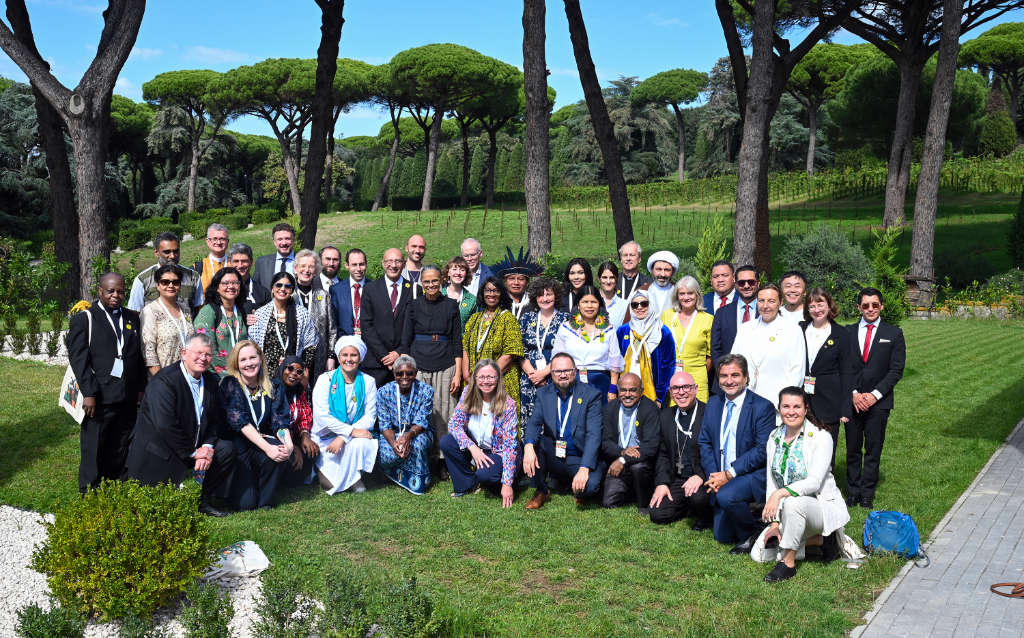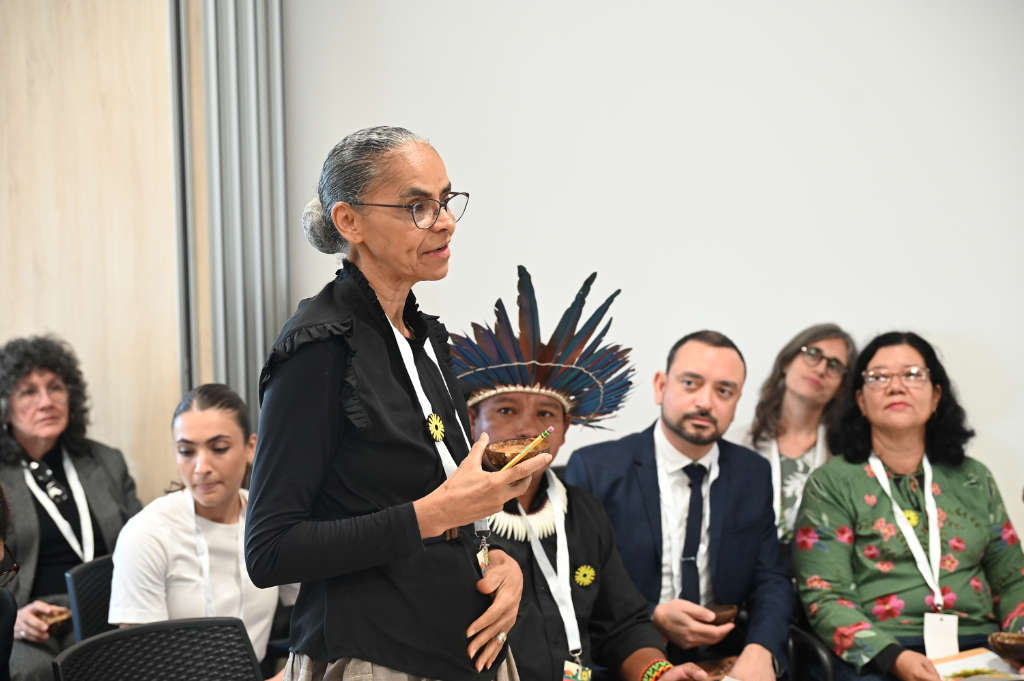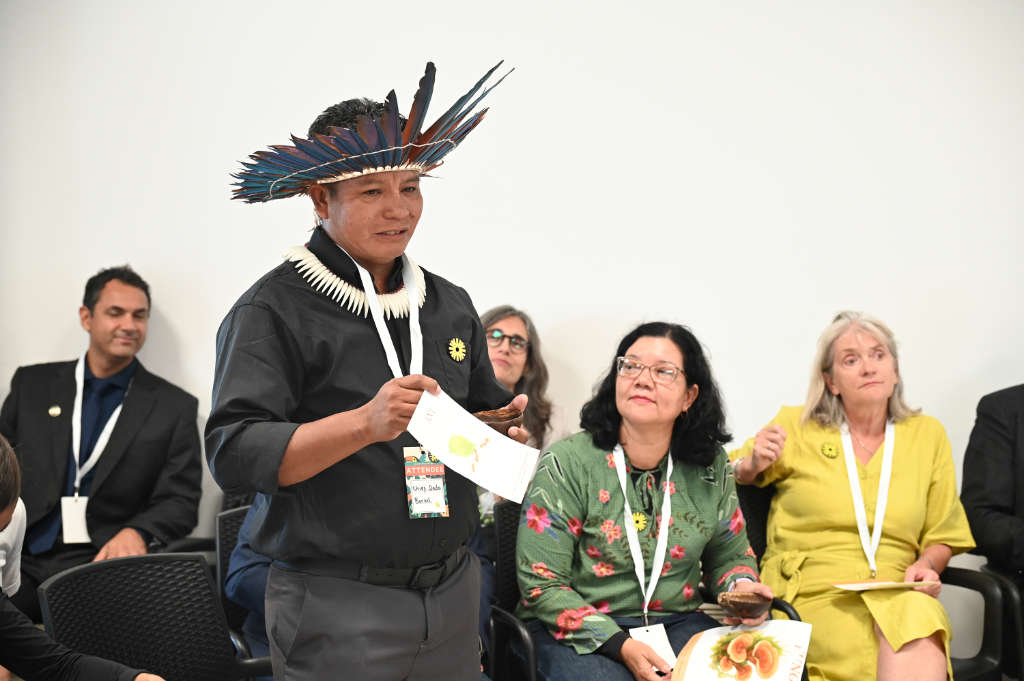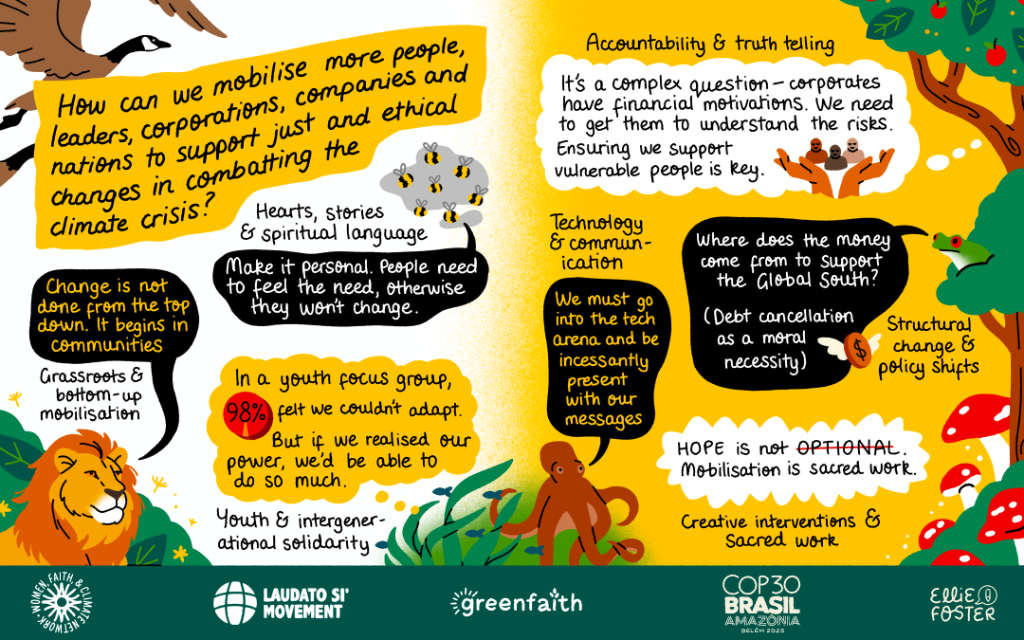
On October 1, 2025, something remarkable happened at Borgo Laudato Si’, nestled in the peaceful hills of Castel Gandolfo. Thirty-five faith leaders, climate advocates, and spiritual guides from across the world gathered—not just to discuss the climate crisis, but to truly listen: to one another, to the Earth, and to the unseen beings whose cries so often go unheard. It was a moment of deep reflection and unity, embodying the heart of the Laudato Si’ Movement’s call for ethical and spiritual climate action.
The gathering, part of the Raising Hope Conference, was co-hosted by the Laudato Si’ Movement, GreenFaith, and the Women, Faith & Climate Network, with the support of Project Dandelion. It formed part of the Global Ethical Stocktake (GES)—an initiative launched by Brazil’s COP30 Presidency to explore the moral and spiritual dimensions of climate action.

The question at the heart of it all was simple yet haunting:
👉 If we already know what must be done, why aren’t we doing it?
From the opening reading of Laudato Si’ by Rev. Fletcher Harper—“We require a new and universal solidarity”—to the closing moment of silent prayer in the gardens, the event was not just dialogue. It was communion. Minister Marina Silva captured the spirit perfectly:
“We already took the decisions. Now it’s our turn to turn this agenda into action.”
Each participant entered the circle carrying a symbolic being—whales, glaciers, pangolins, moss, even future ancestors—reminding everyone that the more-than-human world also deserves a seat at the table.
Across faith traditions and continents, five themes resonated:
- Ancestral Wisdom: Indigenous voices reminded us that spirituality and sustainability are one. “When biodiversity is lost,” one participant said, “we are losing our faith too—because our faith is nature.”
- Interconnection: From the Pacific idea of Va to the African spirit of Ubuntu, participants affirmed that justice begins with restoring relationships—with Earth, with neighbors, with God.
- Prophetic Courage: “If governments are not changing,” one voice from Africa said, “then we need another power. That power is our faith.”
- Simplicity as Resistance: Fasting, simplicity, and voluntary limits were reclaimed as spiritual acts of rebellion in a culture that worships consumption.
- Intergenerational Justice: As one theologian put it, “The unborn are also stakeholders.”

Moments of grief and hope intertwined. Chief Dada Borarí spoke tenderly:
“We must grieve and hope for the planet—and also become the hope.”
Activist Ayisha Siddiqa added: “Biblical images are happening now. We must dare to name them.”
In the end, the message was clear: Faith communities are not on the sidelines of the climate struggle—they are its moral compass.

What emerged at Borgo Laudato Si’ was not just reflection, but resolve: to translate spiritual energy into sustained moral leadership, and to build a future grounded in humility, reciprocity, and love for all beings.
As the GES journey continues toward COP30 in Belém, Brazil, one truth resounds:
To act justly, live simply, and love creation fiercely—these are not optional values. They are sacred imperatives.
Read the full report and discover the inspiring reflections and commitments shared by participants from around the world — a testament to the power of faith in action.





